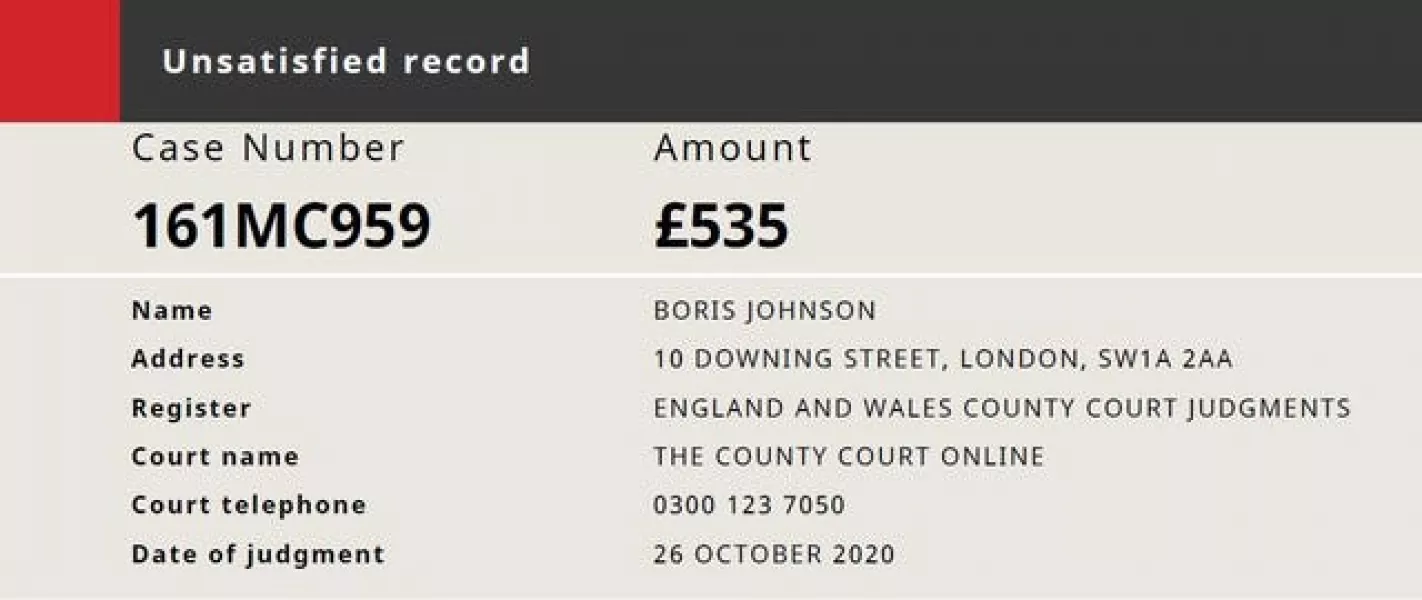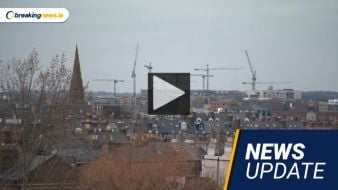British prime minister Boris Johnson has been issued with a court judgment for an unpaid debt of £535 (€624).
A search of the official database shows the “unsatisfied record” registered to Mr Johnson at “10 Downing Street”, it emerged on Wednesday.
The judgment is dated October 26th, 2020, a key period concerning questions over Mr Johnson’s controversial refurbishment to his official residence in London.

Downing Street had been seemingly unaware of the judgment but officials insisted it is not linked to the renovation, which the UK's Electoral Commission is investigating to ascertain whether any donations were properly declared.
“I have seen that report, we are looking into this issue,” the prime minister’s official spokesman said.
“I can confirm it is nothing to do with the refurbishment of the Downing Street estate, where all such bills have been duly paid either by the government or the prime minister personally.”
Asked whether Mr Johnson could be trusted with public finances if he could not manage his own, the spokesman said: “I think our record on the economy is very clear.”
The court records, first reported by the Private Eye magazine, do not state who the creditor is, nor the nature of the debt.

The judgment was issued on October 26th, less than a fortnight after a donor to the ruling Conservative Party said he was donating £58,000 in relation to refurbishments at Mr Johnson’s official residence.
Mr Johnson has denied any wrongdoing and insisted he personally paid for the lavish refurbishments, but has declined to say whether he received an initial loan.
Scrutiny intensified when former aide Dominic Cummings accused Mr Johnson of wanting donors to “secretly pay” for the renovations to the apartment in a “possibly illegal” move.
Bailiffs
The UK government’s website warns that bailiffs can be sent if judgments are not paid.
Banks and loan companies can also use the information to decide whether to issue credit or loans.

“If you’re late with your payments, you could be taken back to court and you may have to pay extra costs,” the website adds.
County court judgments can be issued if someone takes court action against an individual and they do not respond.
The judgment means the court has formally decided the money is owed, according to the government site.







